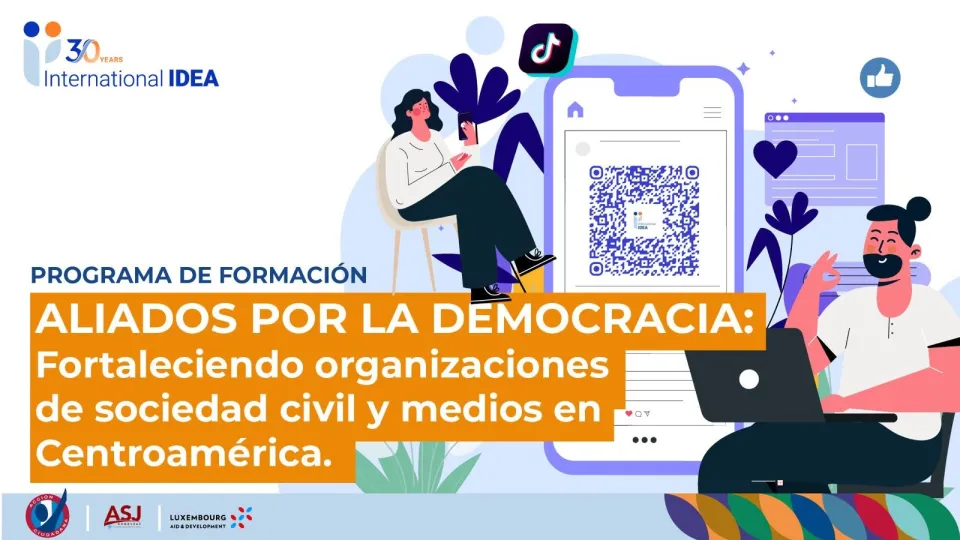This regional report on Asia applies the globally informed framework developed in International IDEA’s 2023 report Designing Resistance: Democratic Institutions and the Threat of Backsliding. Through case studies examining eight countries—India, Indonesia, Mongolia, the Philippines, South Korea, Sri Lanka, Taiwan and Thailand—the report
Búsqueda
Region
Country
Type
Declaración de IDEA Internacional — El 7 de agosto de 2024, el Tribunal Constitucional de Tailandia decidió disolver el Partido Avanzar (MFP, por si siglas en inglés) y prohibió a sus ejecutivos, incluido el exlíder Pita Limjaroenrat, presentarse a elecciones, crear un nuevo partido político o participar en la formación de un nuevo partido durante 10 años. Esta decisión socava los principios democráticos y supone un grave revés para el desarrollo democrático en el Reino de Tailandia.
Thailand’s Constitutional Court is expected to deliver its long-anticipated verdict on 7 August 2024, which may result in the disbandment of the Move Forward Party (MFP) and the banning of its executives from standing for elections for an extended period. Such a decision would undermine democratic principles and represent a significant setback for democratic development in Thailand.
Se espera que el Tribunal Constitucional de Tailandia emita su esperado veredicto el 7 de agosto de 2024, que podría dar lugar a la disolución del Partido Avanzar (MFP) y a la prohibición de que sus ejecutivos se presenten a las elecciones durante un período prolongado. Una decisión de ese tipo socavaría los principios democráticos y representaría un importante revés para el desarrollo democrático en Tailandia.
Thailand’s constitution was made in 2017 by the military junta government. Although it was approved by referendum, the 2017 Constitution remains highly unpopular due to its origin. Constitutional reform was a central issue during the tightly contested 2023 elections, in which an unprecedented voter turnout demonstrated strong support for democratic and progressive parties. The same demand, of amending the 2017 Constitution, was repeated throughout the 2020-2021 mass protest movement.
La constitución de Tailandia fue redactada en 2017 por el gobierno de la junta militar. Aunque fue aprobada mediante referéndum, la Constitución de 2017 sigue siendo muy impopular debido a su origen. La reforma constitucional fue un tema central durante las reñidas elecciones de 2023, en las que una participación electoral sin precedentes demostró un fuerte apoyo a los partidos democráticos y progresistas.
As new political developments come to light in Thailand, the spotlight is again on the intricate relationship between money and politics in the country. The 2023 General Elections were watched closely not only for their outcomes but also for the way campaigns were funded and conducted.
Thailand has made several efforts to reform key aspects of its political finance system, including regulations relating to funding for political parties and election campaigns. Yet, several challenges remain that merit constant improvements and innovation to regulate political finance and put appropriate systems and processes in place to ensure enforcement.
Direct public participation is a feature of almost every exercise in constitution-building in the 21st century.
This issue of Constitutional INSIGHTS examines three different forms of direct public participation in constitution-building—consultation, deliberation and decision-making—and identifies ways to promote inclusive and meaningful direct public participation.
This Primer discusses independent regulatory and oversight institutions. These are public bodies, politically neutral and independent from the three main branches of government, whose purpose is to ensure the integrity—and improve the quality and resilience—of democratic governance.
This issue of Constitutional INSIGHTS examines the choice between making a new constitution and amending an existing constitution to achieve substantial constitutional change.


